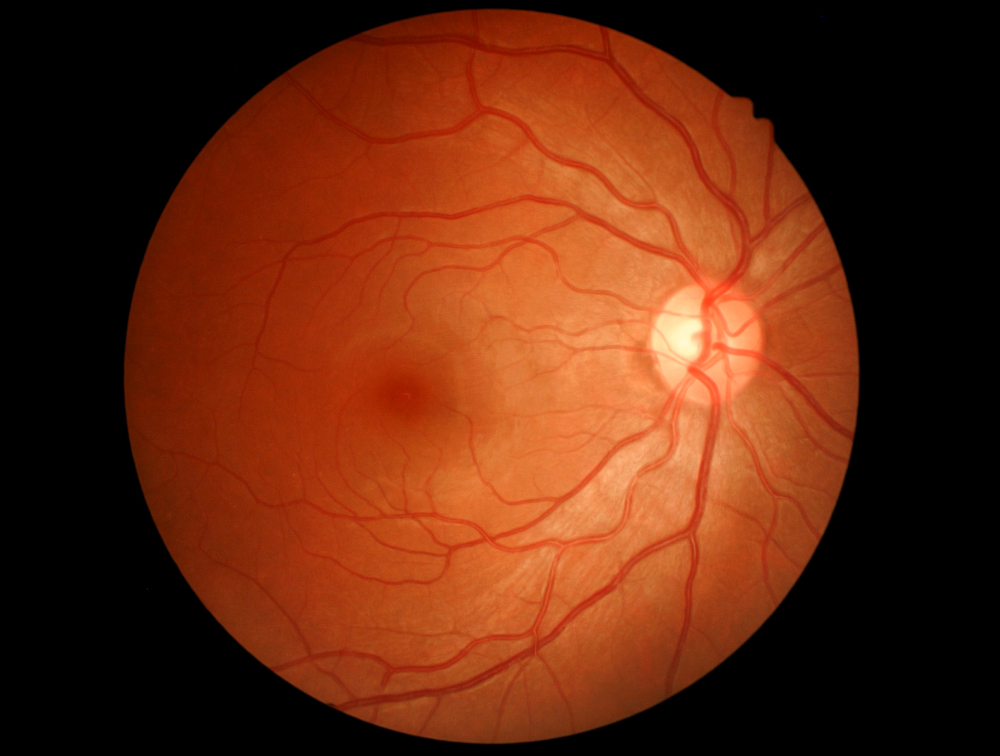Bull’s Eye Retinopathy Yet Another Visual Anomaly of Alport Syndrome, Researchers Find

Researchers have identified additional abnormalities of the retina associated with Alport syndrome, a new study shows.
The study, “Bull’s Eye And Pigment Maculopathy Are Further Retinal Manifestations Of An Abnormal Bruch’s Membrane In Alport Syndrome,” was published in the journal Ophthalmic Genetics.
Alport syndrome is mainly characterized by kidney failure, hearing loss, and visual anomalies due to mutations in the COL4A5 gene. The main ocular clinical features in Alport syndrome are lenticonus (the eye lens has an abnormal conical shape) and the perimacular and peripheral retinopathies (damage in the retina), in which vision is normal or nearly normal.
According to the study, other anomalies, such as bull’s eye maculopathy, can be found in patients with Alport. This condition is characterized by the presence of increased pigmentation in an area of the retina, surrounded by a zone of depigmentation, which, in turn, is delimited by another area of high pigmentation. Bull’s eye affects the eyes asymmetrically, worsens over time with increasing retinal atrophy, and is associated with visual loss in late middle age.
Researchers analyzed retinal images of 69 patients with Alport syndrome, who had their diagnosis confirmed by genetic testing or kidney biopsy.
The team identified a bull’s eye maculopathy in a woman carrying a mutation in the COL4A5 gene. The patient also had kidney impairment, hearing loss in both ears, and central and peripheral retinopathies. The bull’s eye was evident on retinal images and worsened over time, impairing her vision. Her daughter had a subtler form of the same abnormality.
They also identified an early bull’s eye in a woman with Alport syndrome who had normal kidney and hearing function, and whose mutations were not considered severe. The team believes the association of bull’s eye maculopathy with Alport syndrome is unlikely to be coincidental given that both conditions are rare and there are two previous case reports with similar results.
“There were no other obvious explanations for our patients’ bull’s eye maculopathies such as another known retinal disease or medication use,” the authors wrote. “The bull’s eye is very different from macular degeneration, which is more prevalent in [kidney] failure.”
“Although there is currently no specific treatment to prevent these abnormalities, all patients with Alport syndrome should be screened for severe retinal disease, including bull’s eye maculopathy and macular hole, and those with these conditions should be monitored for preventable retinal complications with regular testing of visual acuity, central visual fields, and color vision,” they wrote.







Leave a comment
Fill in the required fields to post. Your email address will not be published.